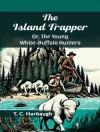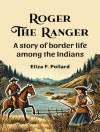Frederic Manning’s The Middle Parts of Fortune is a poignant and unvarnished exploration of the experiences of soldiers during World War I, rendered with a stark realism that invites readers into the grim realities of trench warfare. The narrative is marked by its fragmented structure and lyrical prose, allowing for a vivid depiction of soldier camaraderie, trauma, and the existential dread of conflict. Manning employs a stream-of-consciousness style that immerses readers in the internal lives of his characters, reflecting the literary influences of modernist writers while remaining deeply rooted in the historical context of early 20th-century warfare. Frederic Manning, an Australian-born poet and novelist, was himself a veteran of World War I, having served in the Royal Warwickshire Regiment. His firsthand experiences on the Western Front inform the authenticity and emotional depth of The Middle Parts of Fortune, resulting in a work that serves both as a personal memoir and a universal commentary on the futility and horrors of war. Manning’s literary journey, marked by his interest in modernist themes and psychological insights, culminated in this profound examination of the human condition amidst the chaos of battle. This book is highly recommended for readers interested in the literary representations of war, as well as those seeking a deeper understanding of the psychological impact of military conflict. Manning’s work resonates with a timeless appeal, providing not only a historical account but also a meditation on mortality, identity, and resilience that remains relevant to contemporary audiences.
Про автора
Frederic Manning (1882-1935) was an Australian-born poet and novelist, well-regarded for his literary contributions which poignantly capture the realities of war. His time as an infantryman during the First World War significantly influenced his work, providing an authentic lens through which he portrayed the grim realities faced by soldiers. Manning is most celebrated for his novel ‘The Middle Parts of Fortune, ‘ sometimes published under the bowdlerized title ‘Her Privates We.’ Originally released anonymously in 1929, the novel is lauded for its stark and unromanticized depiction of trench warfare. The book, based on his personal experiences on the Western Front, has been considered one of the most compelling and realistic accounts of soldier’s life during the Great War. It presents an intricate mix of camaraderie and isolation, courage and fear, capturing the essence of the human spirit amidst the chaos of conflict. Manning’s style is characterized by its richly textured prose and deep psychological insights, making him a noteworthy figure in literary circles, particularly those focusing on war literature. His authentic portrayal of war’s front-line challenges the mythologizing of conflict, positioning him as a poignant chronicler of the human cost of war.












